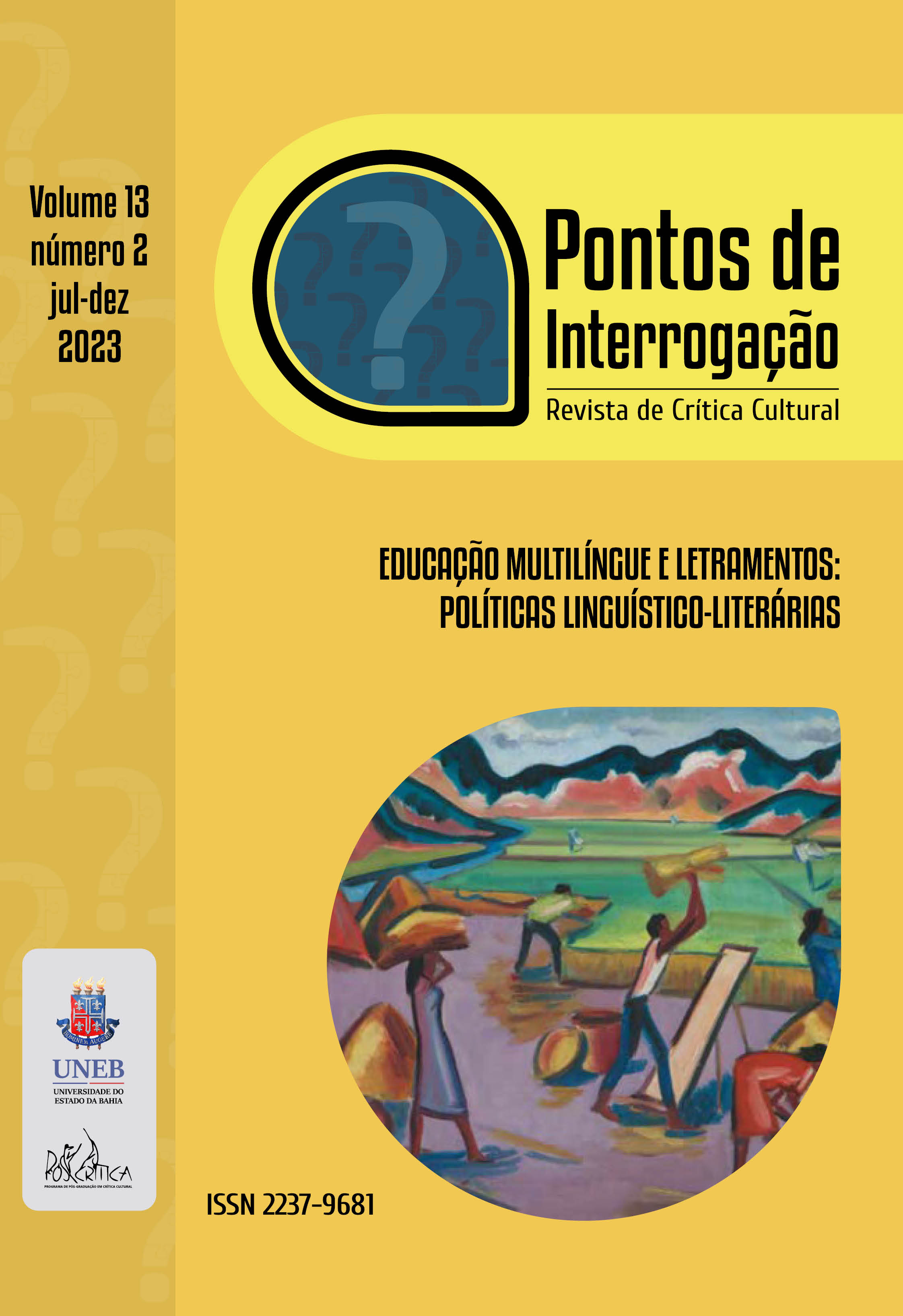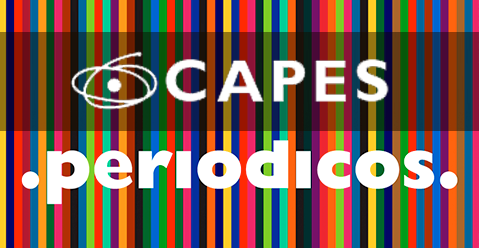Digital literary reading
new ways of conceiving literacy in school
DOI:
https://doi.org/10.30620/pdi.v13n2.p61Keywords:
Reading, Literacy, Tale, School, TechnologyAbstract
This article aims to discuss new ways of conceiving the teaching of reading from the perspective of literary literacy in the virtual environment, presenting an intervention proposal that considered the limits and complexities of digital readers regarding the appropriation of cybernetic language. Having action research as its main base (THIOLLENT, 2002), fieldwork allowed students from a public school in São Cristóvão/SE to experience a reading experience based on Cosson’s literary literacy through analysis and contact with short stories, great classics of popular literature of oral tradition. The theoretical foundation used is also based on the theoretical contributions postulated by Xavier (2013), highlighting the challenges faced by schools in the face of hypertextualized learning; by Coscarelli; Novais (2010) when we point out the complexity of processing by readers of reading in the digital environment; by Rojo (2012) and Freitas (2011) about multiliteracies end digital literacy. Thus, in an attempt to combine technology with teaching reading, taking the basic premises as a guideline, the ConteConto App was created, a tool used on smartphones, with the Android operating system that enables distance learning. Based on experience with the application in online reading workshops, a digital literary notebook was created with the aim of helping educators work with short stories. This analysis makes it possible to reflect on teaching reading practices in light of the advent of cyberculture.
Downloads
References
BORDINI, Maria da Glória; AGUIAR, Vera Teixeira de. Literatura – A formação do leitor: alternativas metodológicas. 2ª ed. Porto Alegre: Mercado Aberto, 1993.
BRASIL. Base Nacional Comum Curricular. Ensino Fundamental. Brasília: Ministério da Educação, Secretaria de Educação Básica, 2018.
CANDIDO, Antonio. Direitos Humanos e literatura. In: A.C.R. Fester (Org.) Direitos humanos E… Cjp / Ed. Brasiliense, 1989.
COSCARELLI, Carla Viana; NOVAIS, Ana Eliza. Leitura: um processo cada vez mais complexo. Letras de hoje, Porto Alegre, v. 45, n. 3, p. 35-42, 2010.
COSCARELLI, Carla Viana. Tecnologias para aprender. Or. Carla Viana Coscarelli. 1.ed, São Paulo: Parábola Editorial, 2016.
CERIGATTO, M. P. , & CASARIN, H. de C. S. (2015). Novos leitores, novas habilidades de leitura e significação: desafios para a media e information literacy. Informação & Sociedade: Estudos, 25(1), 052. Recuperado de https://periodicos.ufpb.br/index.php/ies/article/view/039. Acesso em 3 de janeiro de 2023.
FREITAS, Maria Teresa. Letramento digital e formação de professores. Educ. rev. [online], v. 26, n. 3, p. 335-352. 2011.
WILSON, Carolyn et al. Alfabetização midiática e informacional: currículo para formação de professores. Brasília: Unesco, UFMT, 2013.
COSSON, Rildo. Círculos de leitura e letramento literário. São Paulo: Contexto, 2014.
COSSON, Rildo. Letramento literário: teoria e prática. 2. ed., 6ª. reimpressão. São Paulo: Contexto, 2016.
ROJO, Roxane; Pedagogia dos multiletramentos: diversidade cultural e de linguagens na escola. In: ROJO, Roxane; MOURA, Eduardo (Orgs.). Multiletramentos na escola. São Paulo: Parábola Editorial, 2012. p. 11-32. Disponível em: https://www.academia.edu/35255109/Multiletramentos_na_escola. Acesso em: 01 de setembro de 2023.
ROUXEL, Annie; LANGLADE, Gèrard; REZENDE, Neide Luzia (Orgs.). Leitura subjetiva e ensino de literatura. São Paulo: Alameda, 2013.
XAVIER, Antonio Carlos. Educação, tecnologia e inovação: o desafio da aprendizagem hipertextualizada na escola contemporânea. Revista Contexto Linguístico, v. 7, p. 42-61, 2013. Disponível em: https://periodicos.ufes.br/contextoslinguisticos/article/view/6004. Acesso em: 10 maio 2019.
Published
How to Cite
Issue
Section
License
Copyright (c) 2024 Pontos de Interrogação – Journal of Cultural Criticism

This work is licensed under a Creative Commons Attribution-ShareAlike 4.0 International License.
Autores que publicam nesta revista concordam com o seguinte termo de compromisso:
Assumindo a criação original do texto proposto, declaro conceder à Pontos de Interrogação o direito de primeira publicação, licenciando-o sob a Creative Commons Attribution License, e permitindo sua reprodução em indexadores de conteúdo, bibliotecas virtuais e similares. Em contrapartida, disponho de autorização da revista para assumir contratos adicionais para distribuição não-exclusiva da versão do trabalho publicada, bem como permissão para publicar e distribuí-lo em repositórios ou páginas pessoais após o processo editorial, aumentando, com isso, seu impacto e citação.























